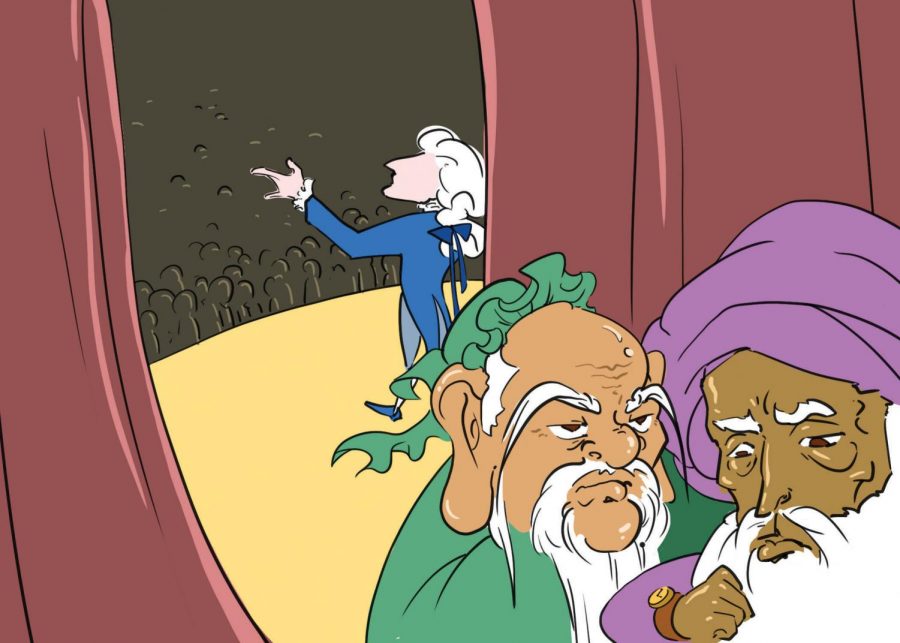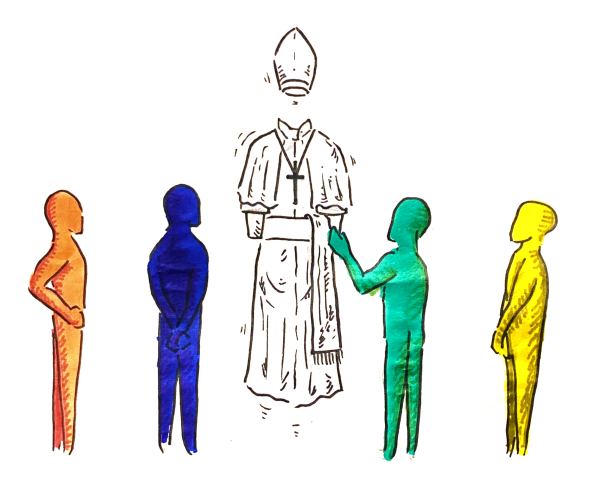Globalize the Eurocentric Humanities Program
Our school’s Humanities Program, a group of interdisciplinary courses, attempts to provide Prep and Lower Mid students with a solid foundation in history, philosophy, literature, and art. The school website states that “the Program helps students sharpen skills…[which] do more than just equip students to pursue their own passions in upper-level electives in the arts, English, history, and philosophy and religion; they will enable students to think more creatively about the issues we face in our world today.” However, the current curriculum fails to accomplish those goals because it has too great a focus on European history and consequently fails to enable students to address contemporary global issues effectively. The program must expand its curriculum to include history, philosophy, and literature from across the globe, or else Hotchkiss fails as a preparatory institution.
As it stands, the program does provides an exceptional background in Western philosophy. It covers figures such as Locke, Hobbes, and Mill and their influences on major ideals and events within the Western world (such as the rise of democracy and the American revolution). However, as my class progressed through the curriculum, I could not help but feeling as if something were missing. As a repeat freshman from a public school, I arrived at the school having already taken a year of Global History. This class covered a similar curriculum to our own, addressing topics such as the Enlightenment and feudalism in a less rigorous way.
However, while my past class might have lacked the thoroughness of our Humanities curriculum, it did focus on a much wider scope of history. Our current curriculum does not explore cultures outside of Europe in detail, such as African, South American, or Asian cultures. This lack of knowledge may produce serious ramifications for Hotchkiss graduates, such as devaluing cultures and ideas that aren’t Euro-American. Our school attempts to prepare the students for success in life. Graduates will no doubt meet individuals who hold different values and ideals. If Hotchkiss does not fully equip students with information necessary to understand different worldviews, the institution will have failed as a prep school. For this reason, Hotchkiss should expand the curriculum of the current Humanities Program to consider more diverse cultures and ideologies.
For instance, Confucius’ teachings are a influence on the world that our curriculum does not cover. Confucius’ philosophy has profoundly impacted Asia and his ideas remain ingrained within Asian cultures to this day. Filial piety, for example, is a Confucian virtue that inculcates strong loyalty to one’s family and respect for one’s elders and ancestors. Since families are regarded as the building blocks of society, a hierarchical system of deference is thought to be crucial for a functioning community, contrasting with Americans’ focus on the individual. For instance, American students are commonly encouraged to major in what makes them happy in college so that they might “accomplish their dreams.” Another example is the Western notion that individuals should have the right to choose whom they marry. These ideals, which many of us consider sacred rights, may be deemed selfish under Confucius’ philosophy. Under that philosophy, if individuals choose an occupation or partner out of personal desire and such a decision harms their family, then those individuals are judged as having acted selfishly, because they valued their own happiness over the happiness of their loved ones. If Hotchkiss graduates interacted with an advocate for this philosophy in, for example, college, many would not be able to understand their perspective. For this reason, it is absolutely vital that the bare fundamentals of Confucianism be taught.
Another example of an area our current program discusses only superficially is Islam. Such an exclusion is staggering, especially considering that Islam is the center of enormous contemporary controversy. The closest our curriculum came to discussing such an important topic was a brief reading covering the Quran’s creation story in 150 Philosophy & Religion. Not even once during the study of the Crusades did our curriculum examine documents from the Muslim perspective. Would a closer study of Islam not significantly improve students’ awareness and understanding of current issues? How can we as students be prepared to address issues within the Middle East if we do not have an understanding of their culture? It has been 17 years since the Twin Towers fell on September 11. Many of our students can call that number their own age. The “War on Terror” has dominated the lives of the student body. We grew up constantly hearing about unspeakable horrors in the news – Afghanistan, Iraq, Paris, San Bernardino, Orlando. Next year, many of those 17 year-olds will be 18, and they will join the discussion in a new way – they will hold the power to vote.
Knowledge vanquishes fear; without it, it is all too easy to be consumed by fear and make irrational judgments. Students deserve the knowledge of the multiple complex histories and philosophies of not only of Nietzche and Kant, but of Confucius and Sohrevardi. At the very least, they deserve an introduction here at Hotchkiss.






